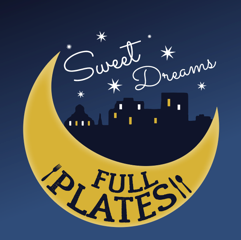Jason Sandford
Jason Sandford is a reporter, writer, blogger and photographer interested in all things Asheville.
 With a minimalist design and the Millennial generation in mind, the new 132-room, upscale AC Hotel by Marriott in downtown Asheville will begin hosting guests Friday.
With a minimalist design and the Millennial generation in mind, the new 132-room, upscale AC Hotel by Marriott in downtown Asheville will begin hosting guests Friday.
Hotelier John McKibbon, chairman of McKibbon Hospitality, took reporters’ questions and led tours around his latest hotel Monday morning. He highlighted the hotel’s European flair, displays of work by local artists, spacious meeting rooms ripe for wedding events, the captivating views from the ninth-floor rooftop bar area and its city-center location.
“I think the real magic is in the location,” McKibbon said over an asparagus and arugula salad at lunch. “People love to walk around Asheville, and it’s so easy from here.”
The hotel aims to attract visitors, especially the younger set, with a special attention to spiffy lighting (funky chandeliers, under-lighting, LED lighting and a light projection on the wall next to the entrance connecting hotel and parking deck, to name a few examples), sleek design and sharp, quick service. Rooms are smaller, and there are technology touches such as plentiful bedside USB ports and a smartphone check-in app.
McKibbon, who lives part time in Asheville, stresses the hotel’s local connections, which is another hallmark of authenticity that the Millennial generation appreciates. The hotel bar area will showcase a host of live, local music offerings. Locally grown food and locally brewed beers will figure prominently on menus. All the local art on display (much of it for sale) gives the hotel a gallery feel. The hotel’s 336-space parking deck including more than 200 spaces available for public parking. McKibbon also noted that the project improved city infrastructure, such as the widening of sidewalks on College and Broadway streets.
On a tour of rooms, hotel General Manager Michael Hickerson pointed to a number of features that make the AC Hotel stand out. He ticked them off: there are no alarm clocks (Millenials use their phones for that); there are no tubs in bathrooms, only showers, and all have rain heads; there’s a hydration station on every floor with individually bagged ice (no more noisy ice makers); luxury vinyl tile on floors (no more dingy carpet, and branded slippers available to any guest who asks); balconies on fifth-floor rooms with great views looking down on the busy city street.
The hotel employees (some 45 full-time, with an additional 25 part-time) will be paid a living wage, McKibbon added.
The European flair can be found in everything from breakfast to the bathroom. (Marriott acquired the Madrid-based brand a few years ago.) A European-style breakfast each morning will feature sliced meats and cheeses, yogurts, house-made breads and more. Bathrooms feature square-shaped toilets with all the plumbing connected through its base, making it a design marvel. Espresso and European coffees will be available in its lobby store (along with Black Mountain-based Dynamite Coffee.)
All in all, the new hotel will boost downtown businesses, many of them small and independently owned, McKibbon noted.
“Guests that stay in this hotel support all the restaurants and retail in downtown. It really pushes a lot of new money in the economy and small businesses,” he said.
Opening during a boom
Despite the excitement generated by the opening, McKibbon and his fellow hoteliers are proceeding with caution. The AC Hotel (estimated to cost $24 million, according to the Asheville Citizen-Times) is the latest in an ongoing hotel construction boom in Asheville and Buncombe County that will make thousands of new rooms available to visitors.
Two years ago, the Buncombe County Tourism Development Authority estimated that about 1,700 new hotel rooms would become available for rent in coming years, a 25 percent increase. That new supply could drive down what hotel operators charge for room rents.
Asheville is also chock full of individual property owners renting out rooms online through sites like Airbnb. The city is the most popular Airbnb location in North Carolina, according to a press release from the company. Hoteliers like McKibbon are well aware of the threat that competition poses to their business, which is supported by a hotel room tax, which in turn is spent on marketing and promotion to continue to draw visitors to Asheville and Buncombe County.
(Side note: All that promotion is working. The tourism industry remains strong in Asheville and the state. In May, North Carolina Secretary of Commerce Anthony M. Copeland announced that state tourism generated record visitor spending last year, with a total of $22.9 billion. That represented a 4.3 percent increase from 2015.)
City officials in recent years have moved to tighten regulations on Airbnb-type rentals, as well as new hotel construction, while also pushing for help to mitigate the infrastructure impacts of all those tourists.
McKibbon has shown he’s willing to be responsive to political concerns. As the AC Hotel project, and the Arras project across the street (as the former BB&T office building is now known), were gearing up a couple of years ago, he promised living-wage jobs for full-time workers and gave $250,000 to the city’s affordable housing trust fund. He also agreed to spend $750,000 on infrastructure improvements, and gave local artists and restaurateurs preference for placement in his project. Later, McKibbon gave the nonprofit Mountain Housing Opportunities an interest-free $1 million loan to help spur the development of more affordable housing in the city. It’s been dubbed “the McKibbon standard,” and that kind of deal is what City Council will press for from future developers seeking hotel approvals.
History of the place
In a way, it’s a return to the city’s past, as well as a look toward its future. The site has long been the location of hotels. The Buck Hotel opened in 1825 and was billed as the first hotel (more a hostelry) west of the Blue Ridge.
The Buck was torn down in 1907 and the Langren Hotel opened in its place in 1912. It catered to businessmen rather than tourists. A room cost $1.50 a night. Regular room rates at the AC Hotel will be in the $200-$300-a-night range, with seasonal spikes.
By the numbers
168: The number of seats in the ninth-floor restaurant and rooftop bar called Capella on 9. Peter Pollay, the chef/owner of Posana restaurant, is running the restaurant, which will serve tapas and other small plates. He recently spent a month in Spain to learn more the cuisine there and bring back ideas.
81,313: The amount of interior space, as measured in square feet.
4: The number of McKibbon Hospitality hotels in Asheville. There’s the AC Hotel, as well as the Aloft Asheville Downtown, Courtyard Asheville and SpringHill Suites. The company is also leading the renovation of the former BB&T office building into a home for a boutique hotel, condos, restaurant and retail space. About half the condos have been sold, John McKibbon said Monday.
























